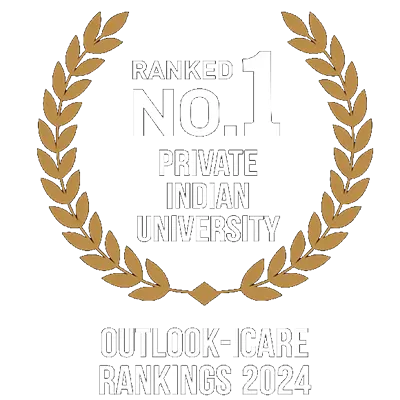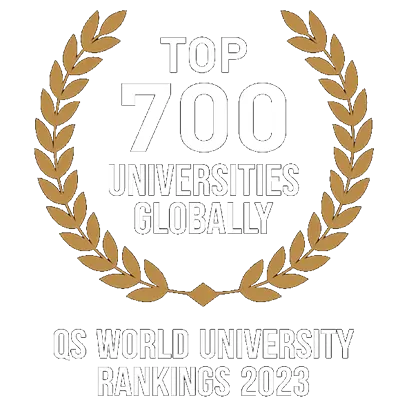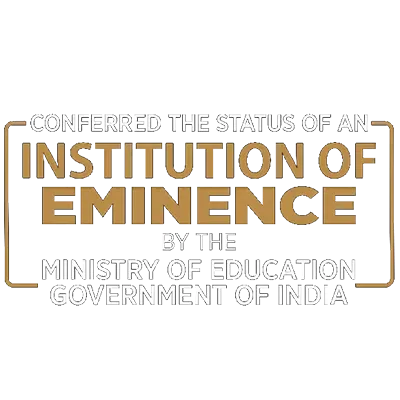The Jindal School of International Affairs recognizes the need for India to have a strong foundation in international affairs. As India's economic and military power continues to rise, it is crucial to have a world-class social science base that can develop and test theories, as well as promote a unique Indian perspective on global studies. The school aims to cultivate a deep understanding of international relations, diplomacy, and global governance through rigorous research and education. By doing so, it hopes to contribute to India's role as a key player in the international arena. Through its commitment to excellence, the Jindal School of International Affairs is poised to make a significant impact on the field of international affairs and beyond.
Students
University Faculty & Staff
Collaborations with International Universities
Alumni Network
Publications



















In an increasingly interconnected world, students aiming to work in global governance, diplomacy, policy, or strategic affairs must carefully select their academic journey. A strong education in international relations, political science, and global affairs forms the bedrock for a meaningful career in dynamic fields of foreign policy, global diplomacy and public administration.
For those seeking a comprehensive foundation, our institution offers specially curated courses such as:
Diplomacy is a nuanced profession that demands strong analytical, negotiation, and communication abilities, along with a deep understanding of international politics. A specialised degree can significantly enhance a student’s career prospects in this field.
Our B.A. (Hons.) Diplomacy & Foreign Policy is the ideal undergraduate degree for those aspiring to careers in diplomacy, embassies, consulates, and international organisations. This course blends theoretical foundations with practical skills essential for effective diplomatic engagement.
At the postgraduate level, the M.A. Diplomacy, Law & Business offers a comprehensive study of diplomatic practices, international law, and the global business environment. This master’s programme bridges the gap between academic theories and the practical world of diplomacy.
Students can also pursue research-driven careers through our Ph.D. programme, specialising in foreign policy of India, international security, or global governance.
Diplomacy courses in India cover a range of essential topics that prepare students for the demands of modern international relations. These include:
Students also develop vital skills such as cross-cultural negotiation, political analysis, report writing, and public speaking.
Courses like our B.A. (Hons.) Diplomacy & Foreign Policy and M.A. Diplomacy, Law & Business are designed to provide both theoretical knowledge and practical exposure. Through internships, seminars, and field visits, students experience real-world diplomatic scenarios, giving them an edge in their careers.
For those considering how to become a diplomat, such courses serve as the first major step towards preparation for competitive exams and international placements.
India stands among one of the best destinations for studying diplomacy and foreign policy. With its rich historical legacy in global negotiations, commitment to multilateralism, and active role in major international forums, India offers unparalleled academic and practical opportunities.
Our institution provides holistic programmes that address the multifaceted nature of diplomacy today. Students are exposed to India’s diplomatic priorities while also exploring global trends and challenges.
In India, programmes like the B.A. (Hons.) Diplomacy & Foreign Policy, M.A. Diplomacy, Law & Business, and M.A. in International Relations, Security & Strategy offer students the chance to deeply understand both Indian and international diplomatic landscapes.
Additionally, India’s diverse society and strategic importance in world affairs make it an excellent living laboratory for students of diplomacy.
Students often ask: “Is a degree in international relations truly valuable?”
The answer is a resounding yes. In today’s interconnected world, the ability to understand global systems, predict international trends, and engage in cross-cultural communication is more critical than ever.
A degree in International Relations opens up a multitude of career opportunities:
By studying at one of the top MA international relations colleges in India, such as ours, students acquire a multidisciplinary education that prepares them to solve complex international challenges.
Moreover, graduates from our M.A. in International Relations, Security & Strategy often pursue prestigious roles both in India and abroad, making the most of their comprehensive training in global affairs.
When selecting a course in international relations, students should seek programmes that combine strong theoretical foundations with real-world applications. At our institution, the following courses are particularly relevant:
These programmes address essential topics like factors affecting foreign policy, the importance of comparative politics, international law, regional studies, and conflict resolution. They are structured to help students think critically about comparative politics definitions and to evaluate international relations courses in India through both local and global lenses.
Students interested in pursuing a Bachelors in international affairs or a BA in international affairs will find our offerings particularly beneficial for a future in government, think tanks, consultancy, or international business.
Graduates with degrees in international affairs courses, political science courses, and diplomacy courses are highly sought after in several professional arenas:
Pursuing a career in political science or career after MADLB course often leads to roles where strategic analysis, negotiation skills, and cross-border understanding are highly valued.
Furthermore, students who study political science explore the meaning of political science and the relevance of political science as a science, gaining an empirical approach to governance and policy analysis.
JChoosing a degree in international relations, political science, or diplomacy and foreign policy provides students with the tools to understand, influence, and lead within the complex web of global affairs.
Whether pursuing a B.A. in Political Science, a B.A. Political Science Honours, or a Masters in International Relations in India, students are investing in a future that values critical thinking, ethical leadership, and global vision.
For aspiring diplomats, policymakers, and global strategists, our institution offers not just education, but a platform for true international engagement and impact.